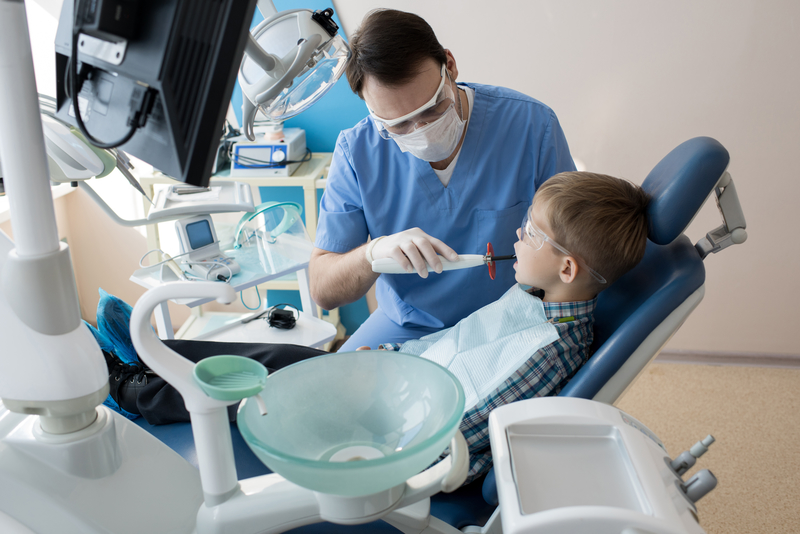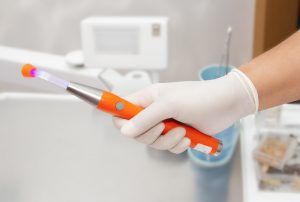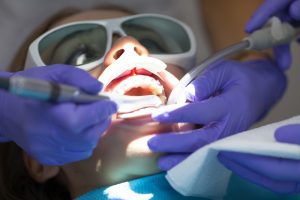Frequently Asked Questions About Laser Dentistry
Healthy Snacks for Children’s Teeth
August 21, 2018Fluoride: How Important Is It?
September 4, 2018
What is laser dentistry and where did it come from? How does a dental laser work and will it hurt my teeth and gums? Is this technology safe for my child? There are many patients who have questions about laser dentistry. This type of dentistry is very safe and actually preferred by many children and adults. Find out the answers to the most commonly asked questions about our laser dentistry services!
What Is Laser Dentistry?
Laser dentistry is a form of dentistry that is becoming more popular among dentists. Dentists have to train to use lasering tools instead of only shots and drills. Laser dentistry is named for its use of lasers to detect cavities, correct gum problems and for removing tooth decay from a tooth. All of these procedures and more can be done using lasers instead of cutting, using shots for anesthesia and drills to cut away your tooth. Plus, laser dentistry is virtually painless for most patients—even infants. It is a very great alternative for patients who want a quicker recovery and a better experience in the dental office.
What Are the Advantages of Using Laser Dentistry?
Dental phobia is when patients fear going to the dentist to the point where they can have panic attacks and intense anxiety in a dental office. These feelings generally stem from worries of pain from shots and drills. Colgate reports from Peter Milgrom, DDS—a dental author and professor at the University of Washington—that up to 8% of people “refuse” to go to the dentist because of dental phobias. However, laser dentistry takes away the fear of shots and drills because those are not used during a laser dentistry procedure.
Patients benefit from:
- Low anxiety from the lack of shots and drills being used.
- Significantly reduced pain, as lasers eliminate the need for anesthesia in most cases. This is because lasers seal off nerve endings as they are used.
- Minimized bleeding and swelling. During soft-tissue treatments, the laser seals blood vessels, encouraging immediate blood clotting.
- No need for stitches. Because the area has been cauterized, stitches may be completely unnecessary for many patients.
- Reduced infection risk because the laser sterilizes the area immediately during treatment.
- Increased precision. Lasers are very precise and allow the dentist to minimize trauma to an area because there is only lasering instead of cutting, which can spare the surrounding tissue from inadvertent damage.
- Faster healing and regeneration. Because there is less bleeding, trauma and infection, a patient can heal more quickly. Plus, the wound seals immediately.

Is This Only for Adults?
Laser dentistry is for people of all ages. Adults are generally used to going to dentists, so they may prefer laser dentistry or they may do just fine with normal dentistry using shots and drills. However, lasers are a much better alternative for infants and children who need dental work done, but who don’t do well with shots, drills or having stitches in their mouth. We are a practice that actually focuses on children and infants because great experiences with dentistry at a young age can help ensure that children continue to see a dentist as they age.
How Is it Used for Cavities?
Laser lights are useful for gently passing light through a tooth to find hidden cavities. Where there is no cavity, the light will pass through tooth material. If there is a cavity, the area will be dark, and a dentist can see the exact size and shape of a cavity. Using a laser, they can gently remove part of the tooth, clean out the decay and fill the tooth once more. This is just as effective as other forms of dentistry without all the anesthetic shots and very loud drills.
What About the Gums?
Sometimes, patients can have abnormalities or growths with their gums. This is especially common with pregnant women who have a surge in blood production. That can make small nodules grow on the gums that may be bothersome. Some conditions like gum disease can also cause abnormalities or growths with the gums. Lasers can help remove those abnormalities. A laser is simply passed along the growth, and as it is removed, the area seals itself immediately.

How Does It work for Frenectomies?
Thousands of infants each year are born with tongue or lip attachments. These are sometimes called “tongue-ties” or “lip-ties”. Essentially, the gums are either connected to the cheeks enough that a child can’t move their lips correctly. The part of the tongue underneath may also be too attached to the floor of the mouth, which can cause speech impediments and difficulting eating.
For these corrections, laser dentistry can be used to gently pass a laser through the attachments, which detach and seal themselves immediately. For infants, this is a virtually pain-free way to remove an attachment, where the alternative is to physically cut it. If you go with the alternative, an infant will have to have stitches and it will take much longer for the area to heal. Plus, it’s much more painful for them.
What Can You Do with a Dental Laser?
Starting in the 1990s, dental lasers were and still are used for:
- Treating hot and cold sensitivities by sealing tubules at the root of the teeth.
- Disinfecting cavities in the teeth prior to cavity fillings.
- Finding subsurface cavities that elude x-rays and traditional probing tools.
- Fixing a gummy smile.
- Removing benign tumors inside the mouth with the gums, cheeks, palate and lips.
- Accelerating the teeth-whitening process.
- Repairing speech impediments and limited movement in children and infants, which are caused by the tongue or lip attachments.
- Accelerating the teeth whitening process, as laser light can be used to whiten teeth.
- Helping with TMJ pain, tooth sensitivity and inflammation. Laser light is a gentle alternative to other methods used to treat TMJ.
If you like all the benefits laser dentistry can provide you or your child, call Hardy Pediatric Dentistry & Orthodontics today at (720) 887-6003!